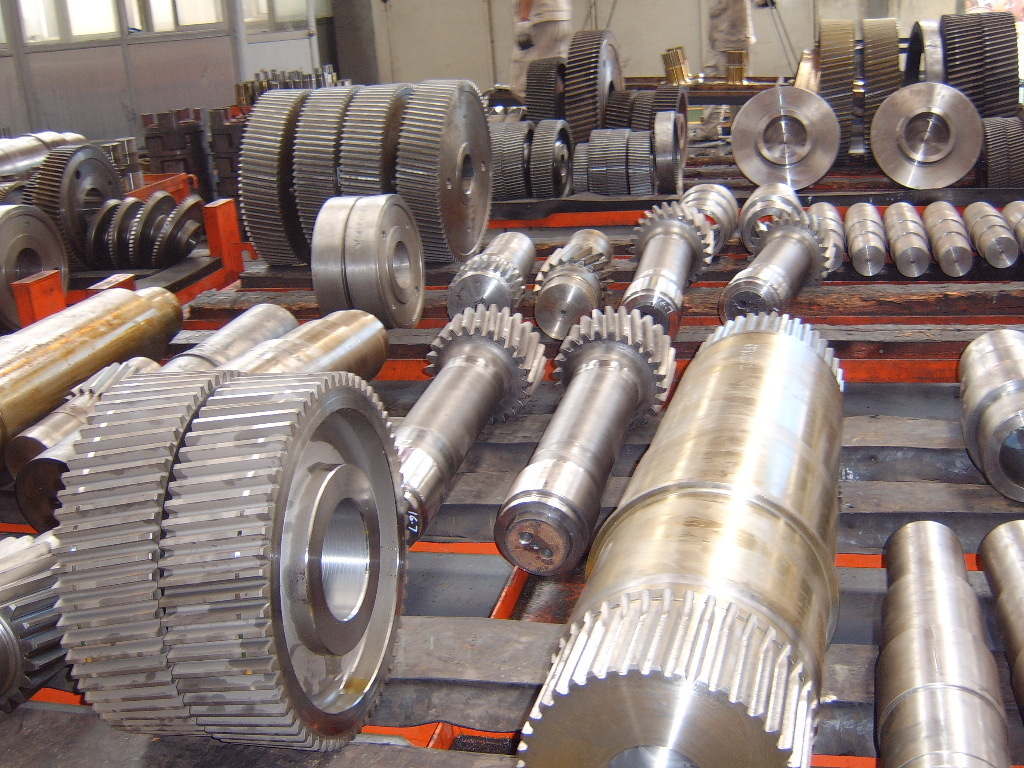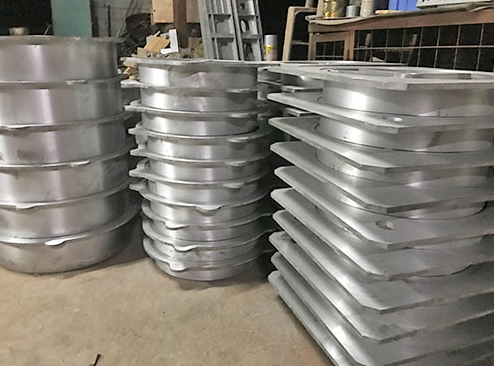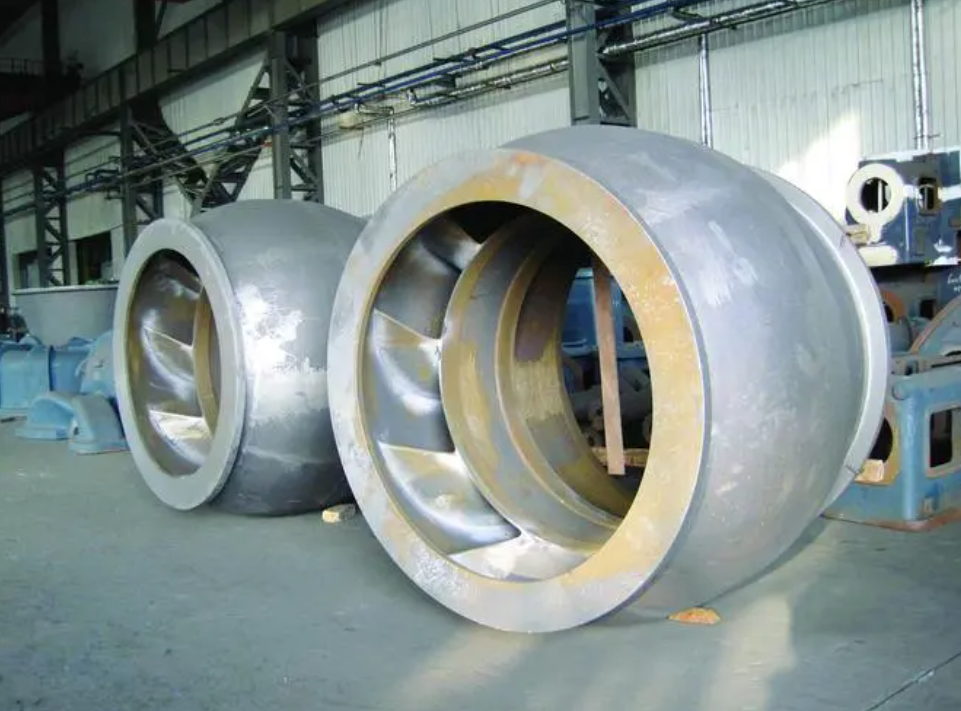Essential Benefits of Using Blind Flanges for LNG Systems
Release Time:
Jun 17,2025
Essential Benefits of Using Blind Flanges in LNG Systems Introduction to Blind Flanges in LNG Applications Blind flanges are an essential component within liquefied natural gas (LNG) systems. These specially designed flanges serve a unique purpose: they close off the ends of pipes or valves, effectively sealing systems and preventing the escape of gases and liquids. In LNG applications, the use

Introduction to Blind Flanges for LNG Applications
Blind flanges are an essential component within liquefied natural gas (LNG) systems. These specially designed flanges serve a unique purpose: they close off the ends of pipes or valves, effectively sealing systems and preventing the escape of gases and liquids. In LNG applications, the use of blind flanges is vital for safety, operational efficiency, and system integrity. This article delves into the **numerous benefits** of using blind flanges for LNG systems, ensuring a comprehensive understanding of their importance.
What Are Blind Flanges?
Blind flanges are circular plates used to cover or seal the ends of pipes or fittings in a piping system. Unlike standard flanges, which allow for connection with other piping components, blind flanges are solid and do not have a central opening. This design feature provides a **robust barrier**, making blind flanges indispensable in various applications, particularly in industries dealing with pressurized gases and liquids.
Key Features of Blind Flanges
Understanding the unique characteristics of blind flanges helps to appreciate their benefits in LNG systems. Here are some core features:
- **Material Variety**: Blind flanges are available in different materials, including stainless steel, carbon steel, and alloy materials, ensuring compatibility with various media and environmental conditions.
- **Pressure Ratings**: They come in various pressure ratings, making them suitable for high-pressure systems commonly found in LNG operations.
- **Customizable Sizes**: Blind flanges can be manufactured in different diameters, allowing for versatile application across diverse piping systems.
The Importance of Blind Flanges in LNG Systems
In LNG systems, where safety is paramount, blind flanges play a vital role in maintaining operational integrity. Their significance can be highlighted through several key benefits:
1. Enhanced Safety Measures
Safety is a primary concern in any LNG application. Blind flanges offer a secure method of sealing off pipes and valves, mitigating risks associated with leaks or pressure loss. By effectively isolating sections of the system, they provide maintenance personnel a safer working environment, significantly reducing the risk of accidents.
2. Improved System Integrity
Blind flanges contribute to the overall integrity of piping systems. By preventing the escape of LNG or vapors, they help maintain the desired pressure and temperature within the system. This integrity is crucial for the efficient operation of LNG facilities, ensuring minimal downtime and reduced maintenance costs.
3. Temperature Regulation
LNG is stored and transported at extremely low temperatures to maintain its liquid state. Blind flanges assist in controlling thermal variations within the system, helping to stabilize temperatures and preventing thermal stress on the pipeline. This regulation is vital for prolonging the lifespan of the equipment and ensuring the safe transportation of LNG.
4. Simplified Maintenance and Inspection
Blind flanges allow for easy access to isolated sections of the piping system during maintenance and inspections. By sealing off specific areas, technicians can conduct checks and repairs without needing to dismantle the entire system. This efficient maintenance process not only saves time but also reduces operational disruptions.
5. Cost-Effectiveness
Investing in blind flanges can lead to significant cost savings in the long run. By enhancing safety, improving system integrity, and reducing maintenance needs, blind flanges contribute to lower operational costs. Their durability ensures they withstand the harsh conditions often present in LNG systems, making them a reliable long-term solution.
Applications of Blind Flanges in LNG Systems
Blind flanges find extensive applications within the LNG industry. Understanding these applications further elucidates their importance:
1. LNG Storage Facilities
In storage facilities, blind flanges are used to seal off tank connections and valves, ensuring that LNG remains contained and preventing accidental releases.
2. Transportation Pipelines
During the transportation of LNG via pipelines, blind flanges are employed to close sections of the pipeline during maintenance or repairs, ensuring continued safe operation without leaks.
3. Regasification Plants
In regasification plants, blind flanges are utilized to isolate equipment and facilitate maintenance, ensuring efficiency and safety in transforming LNG back into gas.
4. LNG Terminals
At import and export terminals, blind flanges are critical in managing the flow of LNG, enabling safe loading and unloading processes.
5. Offshore LNG Platforms
In offshore environments, where conditions can be extreme, blind flanges play a critical role in ensuring the safety and reliability of LNG operations, protecting against potential leaks and failures.
Choosing the Right Blind Flange for Your LNG System
Selecting the appropriate blind flange is crucial for maximizing its benefits in LNG applications. Consider the following factors:
1. Material Selection
The choice of material impacts the flange's performance under specific conditions. Stainless steel is often preferred due to its corrosion resistance, while carbon steel may be suitable for other applications.
2. Pressure and Temperature Ratings
Ensure the blind flange meets the necessary pressure and temperature ratings for your LNG system. Proper ratings are critical for maintaining safety and operational integrity.
3. Compliance with Industry Standards
Always select blind flanges that comply with relevant industry standards and regulations. This compliance ensures that the components installed are safe and reliable.
4. Supplier Reliability
Choose a reputable supplier when sourcing blind flanges. A reliable supplier will provide quality assurance and support, ensuring you receive products that meet your stringent requirements.
Common Misconceptions About Blind Flanges
There are several misconceptions regarding blind flanges that can lead to misunderstandings in their application:
1. Blind Flanges Are Only for Temporary Use
While blind flanges can be used temporarily during maintenance, they are designed for long-term applications as well. Their durability ensures they perform effectively over extended periods.
2. All Blind Flanges Are the Same
Blind flanges come in various materials, sizes, and pressure ratings. Understanding the specific requirements for your LNG system is essential for selecting the right blind flange.
3. They Are Difficult to Install
With the right tools and knowledge, installing blind flanges is straightforward. Proper installation is crucial for maintaining system integrity and safety.
FAQs About Blind Flanges in LNG Systems
1. What are the primary functions of blind flanges in LNG systems?
Blind flanges seal off sections of piping systems, ensuring safety and preventing leaks, as well as facilitating maintenance and inspection.
2. Can blind flanges be reused?
In many cases, blind flanges can be reused as long as they show no signs of wear or damage. However, it is essential to inspect them thoroughly before reinstallation.
3. How do I determine the right size blind flange for my system?
To determine the correct size, refer to the specifications of your piping system, considering factors such as diameter and pressure ratings.
4. Are blind flanges available in different materials?
Yes, blind flanges are available in a variety of materials, including stainless steel, carbon steel, and alloys suitable for different applications.
5. What maintenance is required for blind flanges?
Regular inspections should be conducted to check for signs of wear, corrosion, or damage. Any compromised flanges should be replaced promptly to ensure system safety.
Conclusion
Blind flanges play an instrumental role in the operation of LNG systems, contributing to safety, efficiency, and system integrity. Their advantages, including enhanced safety measures, improved system integrity, temperature regulation, simplified maintenance, and cost-effectiveness, make them indispensable components in the LNG industry. By understanding their applications and selecting the right blind flanges, industry professionals can ensure optimal performance and reliability in LNG operations. As the demand for LNG continues to grow, the importance of blind flanges will only increase, reinforcing their essential position within this critical sector.
多行文本内容元素
富文本内容绑定数据后可解析HTML语言内容
Key words:
News Hotspot









